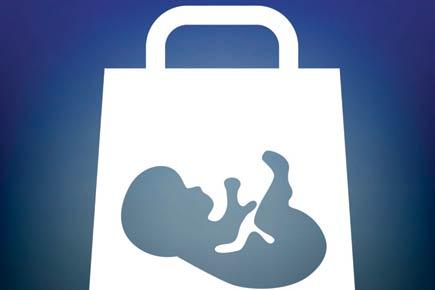It is unfortunate that the government has missed a historical opportunity to regularise the surrogacy industry and has made it rather regressive and backward

 Surrogacy has been in the news for quite some time now. Lots of people have commented on it without having any experience or understanding of how the entire process functions. I have been hearing a lot of comments on how women (surrogate mothers) are being exploited while none of these arguments are supported by any concrete evidence.
Surrogacy has been in the news for quite some time now. Lots of people have commented on it without having any experience or understanding of how the entire process functions. I have been hearing a lot of comments on how women (surrogate mothers) are being exploited while none of these arguments are supported by any concrete evidence.
ADVERTISEMENT

Representational pic
Having handled more than 300 cases of surrogacy for over a decade, my first reaction about the proposed Surrogacy Bill was not shock, as I was anticipating this from the present government. It is unfortunate that the government has missed a historical opportunity to regularise the surrogacy industry in a positive and a robust manner and has made it rather regressive and backward.
It is unfortunate that the government has overlooked the right of single parents, homosexuals and live-in couples. In this day and age where alternative forms of relationships are being considered, this bill has been adverse. Further, the Domestic Violence Act categorically recognizes live-in relationships and protects the women in such relationships, but on the other hand the new proposed bill takes away the fundamental right of procreation.
The argument for homosexuals can still be validated as the Supreme Court refused to strike Section 377, thereby making same-sex relationships illegal in India. I strongly feel that depriving single parents of having a child via surrogacy is nothing short of violating the fundamental right of an Indian citizen guaranteed under the Constitution of India.
The proposed bill takes away the legitimate form of medical treatment from couples that face infertility. It is undisputed that infertility is on a rise due to various reasons and will acquire a mammoth proportion in some time. The government, through this bill, is forcing people to get married, in case they desire to become parents.
Another argument by the government is that of exploiting of women (surrogate mothers). Unfortunately, till date, no government agency or the Ministry of Health and Family Welfare has given any statistics as to how many women have been actually exploited. An argument in absence of concrete data is extremely vague and superficial. A desperate woman in need of money may choose an illegal act to make ends meet; surrogacy offered a legitimate source of income for such women. By restricting surrogacy to close relatives, the government is creating a situation similar to that of the Human Organ Transplant Act wherein a robust black market is thriving. Further, it is making a couple’s intimate and private situation public and mortifying. The government is encouraging black economy and marketing in view of this bill. Restricting commercial surrogacy would encourage cash transactions, which would be difficult to prove, and also, no relative would undergo surrogacy on humanitarian grounds. Overall, this effort of the government was half hearted and did not address the real situation. The government restrained surrogacy for only Indians in 2013, which resulted in a huge loss of foreign exchange as foreigners stopped coming to the country for surrogacy, thereby curbing medical tourism drastically. Assuming that restraining foreigners is acceptable, but imposing restrictions on Indians whereby they are deprived of a legitimate medical treatment is against the fundamental principles of law. Instead of coming out with a regressive bill, the government could have streamlined the process and the industry.
I am not against adoption but thinking that curbing surrogacy would increase adoption is totally false. The functions of CARA and the cumbersome procedure involved for adopting a baby makes it an unviable option. The rules for adoption are complicated and the process may take up to two years. In view of this, the only ray of hope for couples has been taken away.
The height of absurdity is that a couple has to be married for 5 years to avail surrogacy. If the couple detects infertility within the first year of marriage, they have to wait for four more years to become parents, thus adding insult to the injury. This may further lead to a rise in divorce, as the patience may die out and the frustration might lead to the breakdown of a marriage. The only hope I have is that the draft bill shall be presented to the Joint Parliamentary Committee wherein healthy discussions and debates may lead them to consider certain contentions and change the draft.
The writer is a medico-legal lawyer who specialises in assisted reproductive technology
 Subscribe today by clicking the link and stay updated with the latest news!" Click here!
Subscribe today by clicking the link and stay updated with the latest news!" Click here!






